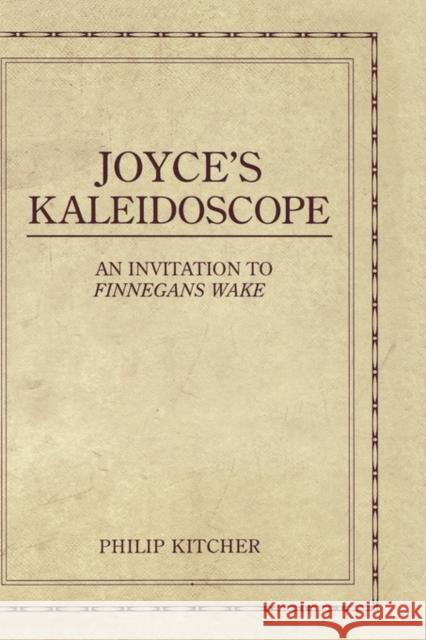Joyce's Kaleidoscope: An Invitation to Finnegans Wake » książka
topmenu
Joyce's Kaleidoscope: An Invitation to Finnegans Wake
ISBN-13: 9780195321029 / Angielski / Twarda / 2007 / 336 str.
Joyce's Kaleidoscope: An Invitation to Finnegans Wake
ISBN-13: 9780195321029 / Angielski / Twarda / 2007 / 336 str.
cena 231,29
(netto: 220,28 VAT: 5%)
Najniższa cena z 30 dni: 211,46
(netto: 220,28 VAT: 5%)
Najniższa cena z 30 dni: 211,46
Termin realizacji zamówienia:
ok. 16-18 dni roboczych.
ok. 16-18 dni roboczych.
Darmowa dostawa!
James Joyce's Ulysses, once regarded as obscure and obscene, is now viewed as a masterpiece of world literature. Yet Joyce's final novel, Finnegans Wake, to which he devoted seventeen years, remains virtually unread. Its linguistic novelties, layered allusions, and experimental form can make it seem impenetrable.
Joyce's Kaleidoscope attempts to dissolve the darkness that surrounds the Wake and to display instead its mesmerizing play of light. Philip Kitcher offers an original, appealing interpretation of Joyce's novel while also suggesting an approach to the magnum opus that will attract readers of every sort. Focusing throughout on the book's central themes, Kitcher proposes that Finnegans Wake has at its core an age-old philosophical question-"What makes a life worth living?"-that Joyce explores from the perspective of someone who feels that a long life is now at its end. Alert to echoes, Kitcher progresses through the novel, adding texture to his portrait of an aging dreamer who seeks reassurance about the worth of what he has done and who he has been. The novel's complex dream language becomes meaningful when seen as a way for Joyce to investigate issues that are hard to face directly, common though they may be. At times the view is clouded, at times it's the music or sheer comedy that predominates, but one experiences in the retrospective momentum a brilliant clarity unlike anything else in literature. With a startlingly profound compassion and a distinctive brand of humanism, Joyce points us to the things that matter in our lives. His final novel, Kitcher believes, is a call to life itself. Those who heed the call and pick up Finnegans Wake, whether for the first or the fifth time, will find in Joyce's Kaleidoscope an ideal companion.










